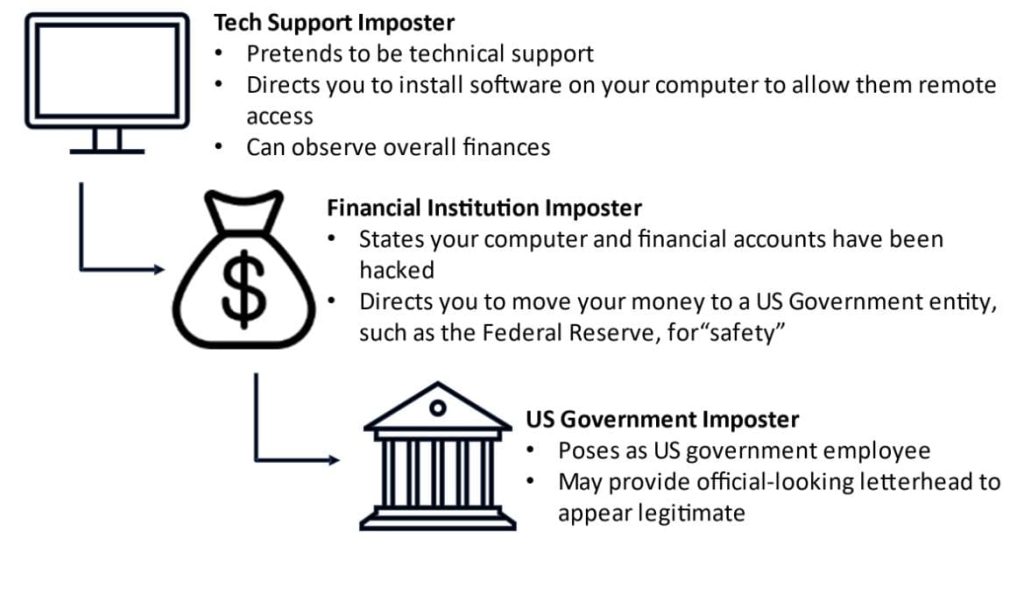The FBI has issued a warning about a growing tech support courier scam, specifically targeting senior citizens, to abscond with their cash and valuable metals.
The Federal Bureau of Investigation’s (FBI) Internet Crime Complaint Center (IC3) has released a Public Service Announcement (PSA), warning that users are being tricked into handing over their funds for safekeeping, often in the form of cash or metals in a new kind of scam that blends online and offline methods.
The IC3 reported $5 million in losses from May to December 2023, attributed to scammers posing as tech support or US government officials to gain users’ trust.
The IC3 states that scammers can also use multiple identities to trick victims into believing their financial accounts are at risk, instructing them to liquidate their assets or purchase precious metals. The scam combines on-and-offline techniques to obtain victims’ hard-earned money, with some victims wired directly to a metal dealer.
This malicious scheme starts with threat actors/scammers convincing victims, typically senior citizens, that their bank accounts have either been hacked or could be targeted by cybercriminals. This generates a sense of urgency.
According to the alert, after convincing the victim to get the cash or precious metals, the scammers send couriers to collect it from them, claiming they will safeguard them in a protected account. However, victims never receive a response and lose their money. To make this exchange seem legitimate, scammers can share a passcode with the victims.
Such scams are becoming increasingly widespread and law enforcement agencies keep warning users about them. A recent trend noticed in this regard is the incorporation of unorthodox and novel ways of deception to install malware or steal funds, indicating that scammers are expanding their deception boundaries substantially.
For instance, in July 2023, the Department of the Army Criminal Investigation Division reported that US military personnel were receiving unsolicited smartwatches, which could connect to Wi-Fi networks and establish unauthorized connections with their cell phones, potentially exposing sensitive personal data. In its press release, the department noted that the devices contained malicious software, including malware, which allowed the sender to access saved data, including banking information, contacts, and account details.
Another innovative attack was identified by Trustwave SpiderLabs in March 2020. In this unique attack, a compromised USB dongle was used to target businesses. The FBI issued a warning, stating that Fin7 is the cybercrime syndicate behind this notorious scheme involving infected USB devices.
To avoid becoming victims of such scams, the FBI advises the public to protect personal information, avoid handing over cash or metals to strangers, avoid clicking on pop-ups, unsolicited messages, or downloading software, and never allow unknown individuals to access their computers.
“The US Government and legitimate businesses will never request you purchase gold or other precious metals,” the FBI noted.
RELATED TOPICS
- Hackers used fake job website to scam jobless US veterans
- US military personnel defrauded into losing $822m via scams
- Chinese Scammers Use Fake Loan Apps for Money Laundering
- New Phishing Scam Targets Digital Payment and Online Banking Users
- “Wire bank transfer” malware phishing scam hits SWIFT banking system

